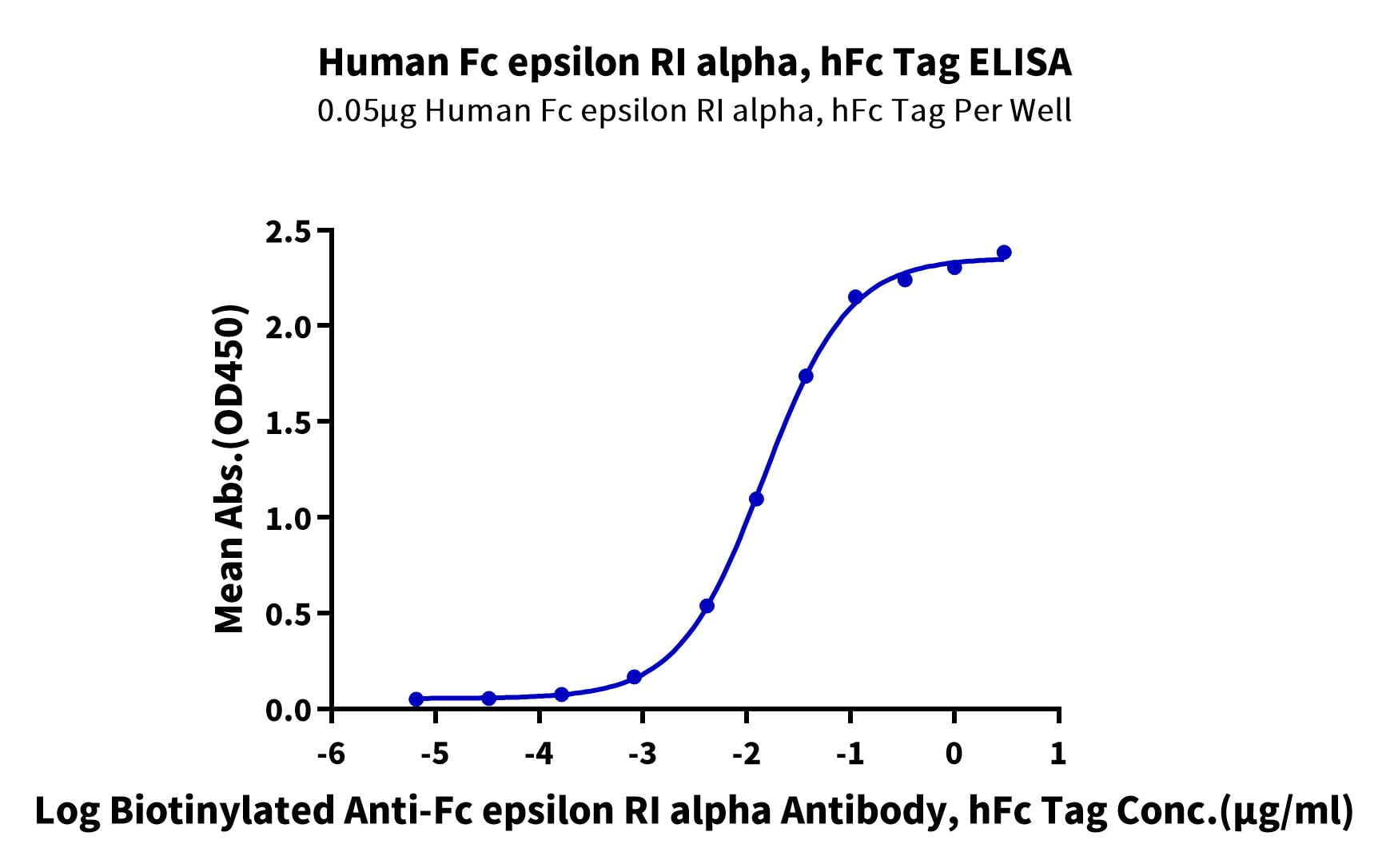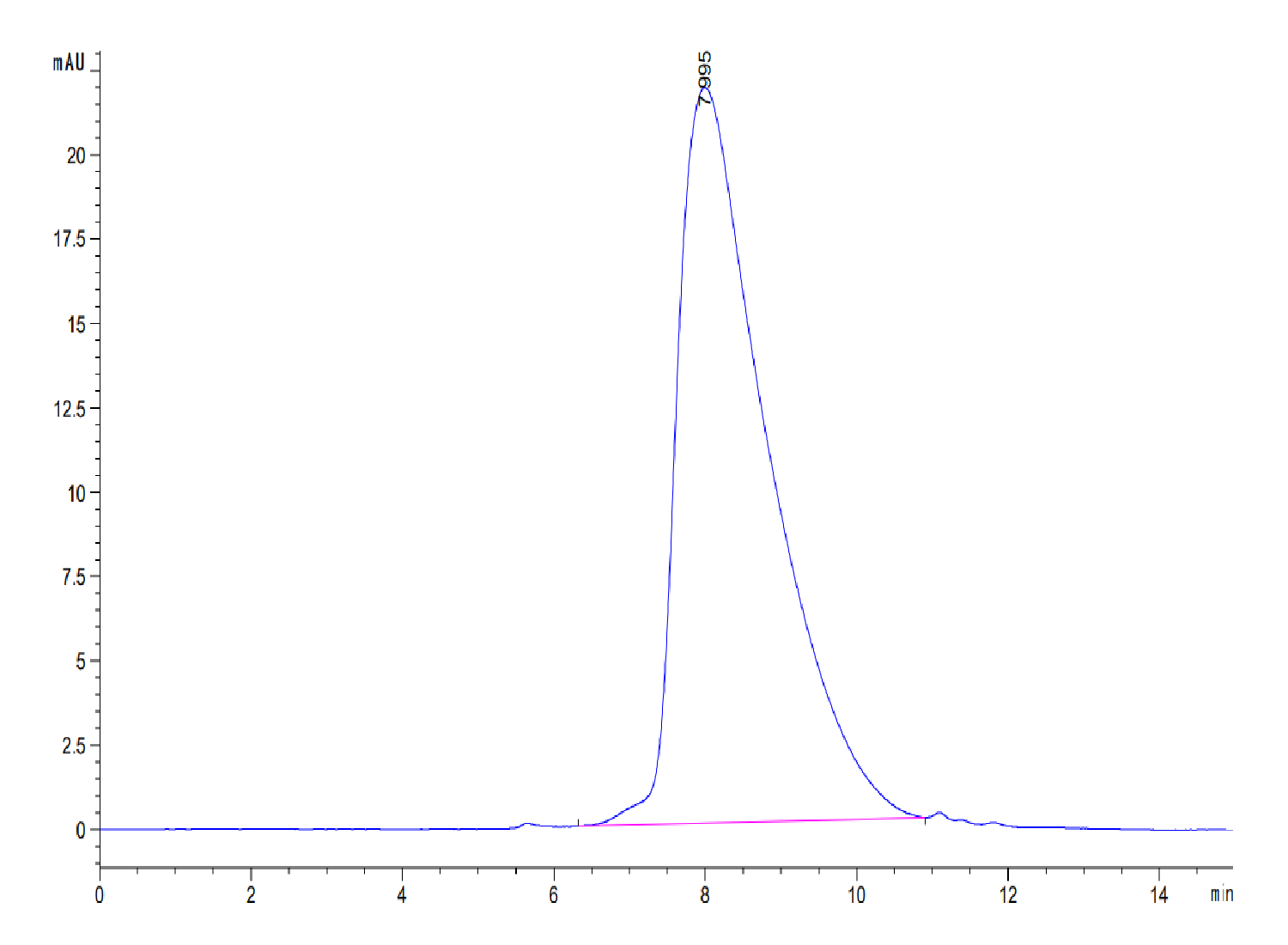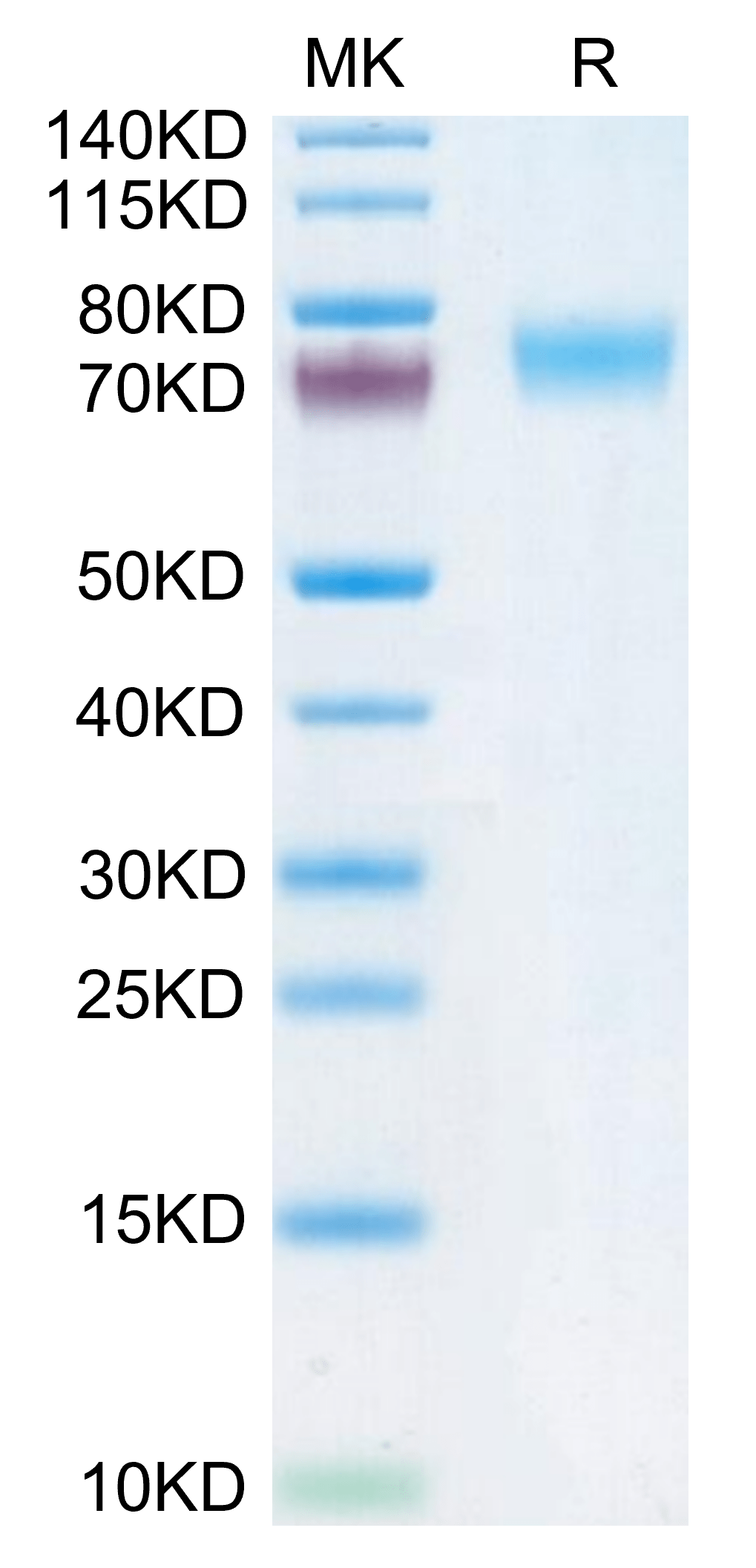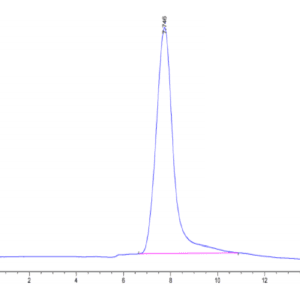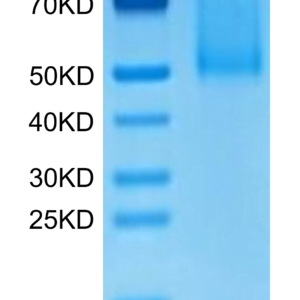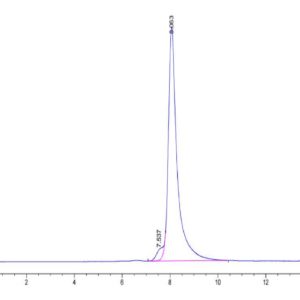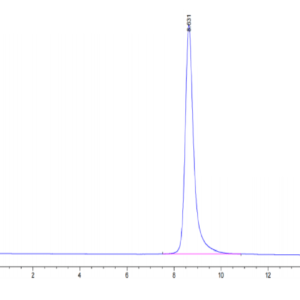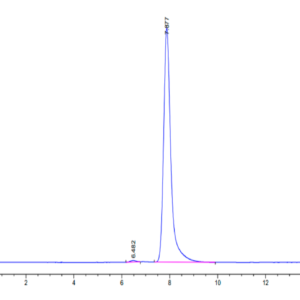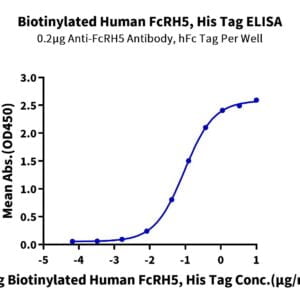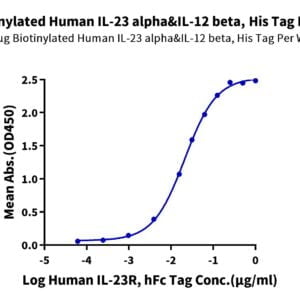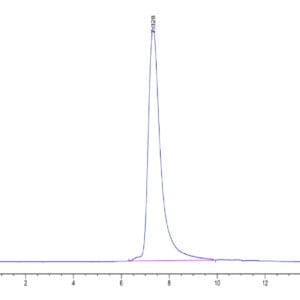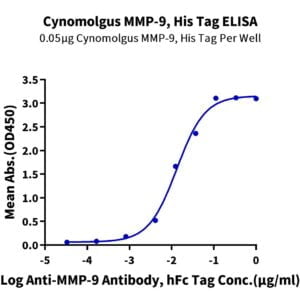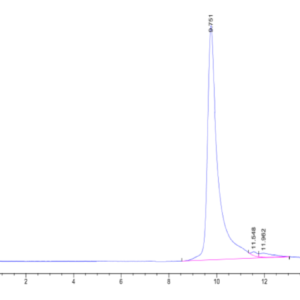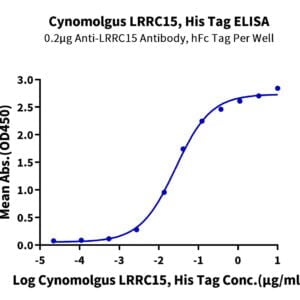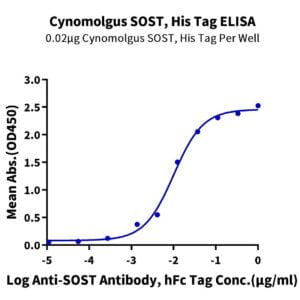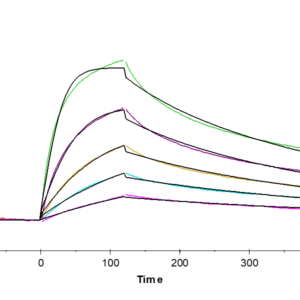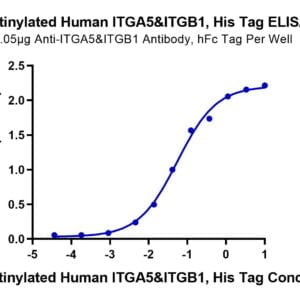| Weight | 1 lbs |
|---|---|
| Dimensions | 9 × 5 × 2 in |
| accession | P12319 |
| express system | HEK293 |
| product tag | C-hFc |
| purity | > 95% as determined by Tris-Bis PAGE;> 95% as determined by HPLC |
| background | Known susceptibility genes to atopy and asthma have been identified by linkage or associations with clinical phenotypes, including total serum IgE levels. IgE-mediated sensitivity reactions require a high-affinity IgE receptor (FcepsilonRI), which immobilizes the immunoglobulin on the surface of the effector cells, mostly mast cells and basophils. Similarly to the previously investigated beta subunit of the receptor, FCER1A is a good candidate for a quantitative trait locus (QTL) in allergic diseases, and appears to participate in the systemic regulation of IgE levels. |
| molecular weight | The protein has a predicted MW of 47.8 kDa. Due to glycosylation, the protein migrates to 70-78 kDa based on Tris-Bis PAGE result. |
| available size | 100 µg, 500 µg |
| endotoxin | Less than 1EU per μg by the LAL method. |
Human Fc epsilon RI alpha/FCER1a Protein 3664
$203.00 – $675.00
Summary
- Expression: HEK293
- Functional: Yes (ELISA)
- Amino Acid Range: Val26-Gln205
Human Fc epsilon RI alpha/FCER1a Protein 3664
| protein |
|---|
| Size and concentration 100, 500µg and lyophilized |
| Form Lyophilized |
| Storage Instructions Valid for 12 months from date of receipt when stored at -80°C. Recommend to aliquot the protein into smaller quantities for optimal storage. Please minimize freeze-thaw cycles. |
| Storage buffer Shipped at ambient temperature. |
| Purity > 95% as determined by Tris-Bis PAGE |
| target relevance |
|---|
| Known susceptibility genes to atopy and asthma have been identified by linkage or associations with clinical phenotypes, including total serum IgE levels. IgE-mediated sensitivity reactions require a high-affinity IgE receptor (FcepsilonRI), which immobilizes the immunoglobulin on the surface of the effector cells, mostly mast cells and basophils. Similarly to the previously investigated beta subunit of the receptor, FCER1A is a good candidate for a quantitative trait locus (QTL) in allergic diseases, and appears to participate in the systemic regulation of IgE levels. |
| Protein names High affinity immunoglobulin epsilon receptor subunit alpha (Fc-epsilon RI-alpha) (FcERI) (IgE Fc receptor subunit alpha) |
| Protein family 348 |
| Function High-affinity receptor for immunoglobulin epsilon/IgE. Mediates IgE effector functions in myeloid cells. Upon IgE binding and antigen/allergen cross-linking initiates signaling pathways that lead to myeloid cell activation and differentiation. On mast cells, basophils and eosinophils stimulates the secretion of vasoactive amines, lipid mediators and cytokines that contribute to inflammatory response, tissue remodeling and cytotoxicity against microbes. Triggers the immediate hypersensitivity response to allergens as a host defense mechanism against helminth parasites, pathogenic bacteria and venom toxicity. When dysregulated, it can elicit harmful life-threatening allergic and anaphylactic reactions. |
| Pathway 242 |
| Subellular location Cell membrane ; Single-pass type I membrane protein. |
| Tissues Expressed in eosinophils. |
| Structure Tetramer of an alpha chain, a beta chain, and two disulfide linked gamma chains. Interacts with IGHE (via CH3 region). |
| Target Relevance information above includes information from UniProt accession: P12319 |
| The UniProt Consortium |
Data
Publications
Publications
| pmid | title | authors | citation |
|---|---|---|---|
| We haven't added any publications to our database yet. | |||
Protocols
| relevant to this product |
|---|
Documents
| # | ||
|---|---|---|
| Please enter your product and batch number here to retrieve product datasheet, SDS, and QC information. | ||
